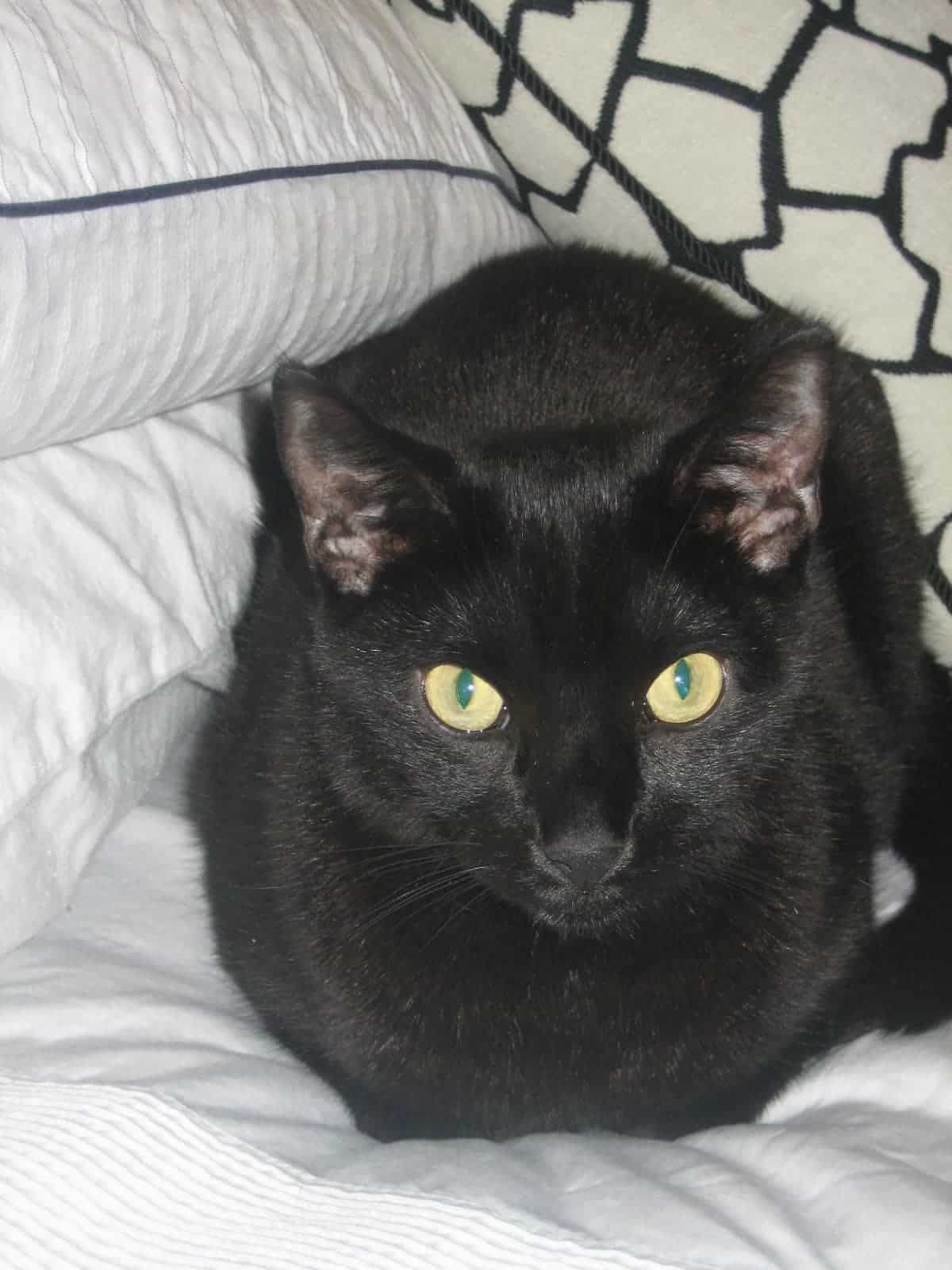Corneal ulcers are very common in cats and are defined as an abrasion or defect of the cornea, which is the clear front part of the eye. Squinting and tearing are common signs and occur because ulcers are painful.
CAUSES OF CORNEAL (EYE) ULCERS
Causes include:
1. Chronic Herpes Virus infections commonly cause corneal ulcers.
2. Dry Eye, which often occurs as a result of repeated and/or persistent Herpes Virus infections, can also result in an ulcer.
3. Corneal sequestration is a hereditary disorder of the cornea that occurs in Persians and Himalayan breeds which can lead to ulcers.
4. Eosinophilic Keratitis is an immune system defect of unknown origin that can result in corneal ulcers.
5. Genetic conditions involving extra eyelashes and/or hair, such as Trichiasis in Persian cats can also irritate the cornea and result in ulcers. Trichiasis is a condition in which the long facial hairs near the nasal side of the eye irritate the eye. These must be trimmed regularly to prevent problems.
WHAT YOUR VET CAN DO
* Diagnosis is confirmed by staining the eye with a fluroscein dye that causes the ulcerated (abraded) corneal tissue to turn a greenish color. Topical eye medications are generally applied every four to six hours. The cornea is revaluated in one week by fluorescent staining. Ulcers that do not heal promptly (within seven days) should immediately be referred to an eye specialist to prevent scarring and corneal perforation.
* A Polymerase Chain Reaction (PCR) Test can determine whether Herpes Virus is responsible which involves laboratory analysis of a scraping of corneal tissue.
NOTE: Topical antiviral eye medications are expensive but effective to treat viral
induced corneal ulcers. These include: Idoxuridine, Triflunidine, and Vidorabine.
COMPLEMENTARY TREATMENTS FOR EYE (CORNEAL) ULCERS
Complementary Therapy is geared to stimulate the body’s natural defenses, stop the Herpes Virus from replicating, and decrease irritation to the eye.
* L-Lysine Tablets – 250 mg to 500 mg mixed into food daily or broken into pieces and given piece by piece.
* Zinc-C – 0.25 percent eyewash.
* Riboflavin (Vitamin B2).
* Glycosaminoglycan eyewash.
* Cold black tea eye compresses.










Every where i search on the internet i cannot find :
body systems affected by corneal ulcers
how it affects those systems
can you help me find this information? email me back please
Hi Christina,
Corneal Ulcers affect the eye or ocular system. If the ulcer, ios left untreated it can potentially should rupture and affect structures behind the eye as well.
If you look under “The Head” section on this site under dogs as well as nder cats there is a very nice article I wrote that talks about corneal ulcers in detail.
Thank you
Dr Carol
My kittens are having eye problems and we dont know whats wrong with them. We cant take them to the vet because we dont have enough money, so I dont know what to do. We think they have distemper because we found this kitten that had the same eye problem that had distemper and we washed off the gunk on his eyes and then took him to the vet and she said it was distemper. The kittens are squinting their eyes and their eyes are all watery. Please email me back.
Hi Whitney
The kittens do need to see the vet especially if you think they have distemper. They need vaccination and proper treatment so as to insure they grow up and enjoy a healthy life. Warm compresses will help to remove the discharge from their eyes and cod liver oil a couple drops applied into each eye twice daily will also help.
I am glad to talk to you and am available toll free at 1-866-372-2765.
Thank you
Dr Carol